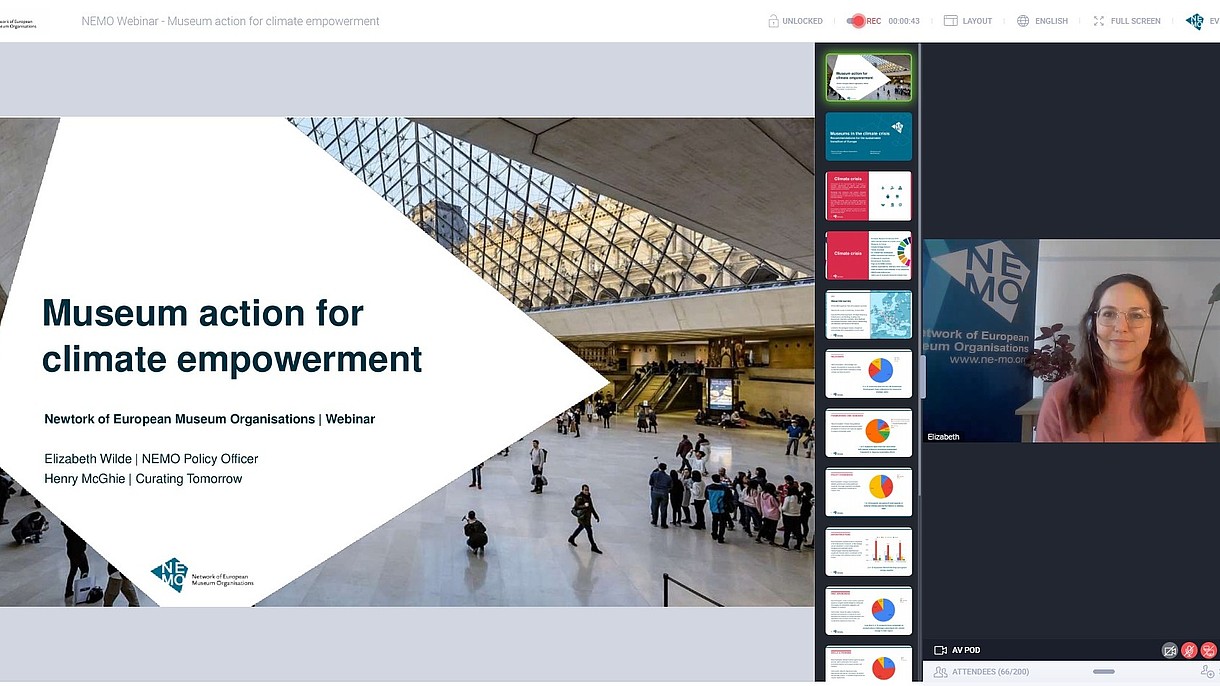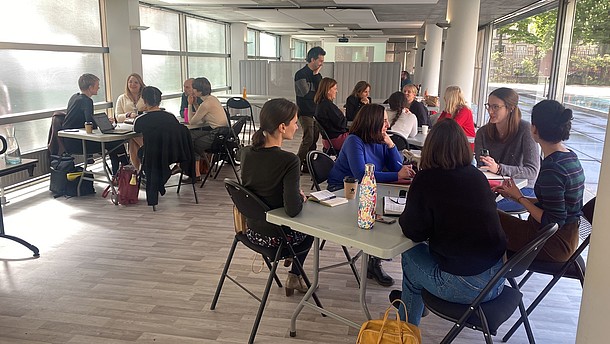Elizabeth Wilde kicked off the webinar with an introduction to NEMO's most recent work and research regarding museums and their status within the sustainable transition of Europe.
Henry McGhie took over by outlining the Glasgow Work Programme on Action for Climate Empowerment, which was adopted at COP26, runs till 2031, and is the main opportunity for museums to contribute to the United Nations Framework Convention on Climate Change (UNFCCC) and Paris Agreement in concrete ways.
McGhie also introduced the participants to a new guide on measuring and reporting greenhouse gas emissions, developed in partnership with Co2Action, a US-based greenhouse gases (GHG) accounting firm.
In the webinar, McGhie suggested a simple blueprint for climate action in and with museums:
- Mitigation through museums
Support all of society to reduce its greenhouse gas emissions. - Mitigation in museums
Museums must reduce their own greenhouse gas emissions acrossall aspects of their activity, in line with Paris Agreement commitments. - Adaptation through museums
Support all of society, and nature, to face and cope with current and projected climate impacts. - Adaptation in museums
Make sure museums and collections can survive climate impacts. - Climate action as part of sustainable development, climate justice and a just transition
Make sure it is fair, and that climate action also addresses other sustainable development challenges (inequality, poverty).
Further reading by McGhie
Meet the speakers
Henry McGhie has a background as an ecologist, museum curator and manager. He set up Curating Tomorrow in 2019 to help empower museums to contribute to sustainable development agendas, including the SDGs, climate action, biodiversity conservation, Disaster Risk Reduction and human rights. He is a member of the ICOM Sustainability Working Group, and works internationally with museums, museum organisations and partners. He has been involved with the UNFCCC since 2017 and was involved in the development of the Glasgow Work Programme.
Elizabeth Wilde has been involved in a variety of cultural and political organisations and projects and currently contributes to the Museums for Future initiative. She studied political science at California State University Long Beach and earned her MA at the Berlin School of Economics and Law, in both instances dedicating her research to the socio-political impact of cultural policies and practices. Passionate about the role of cultural institutions in achieving social and climate justice, she is committed to advocating for museums at the Network of European Museum Organisations as their Policy Officer.




